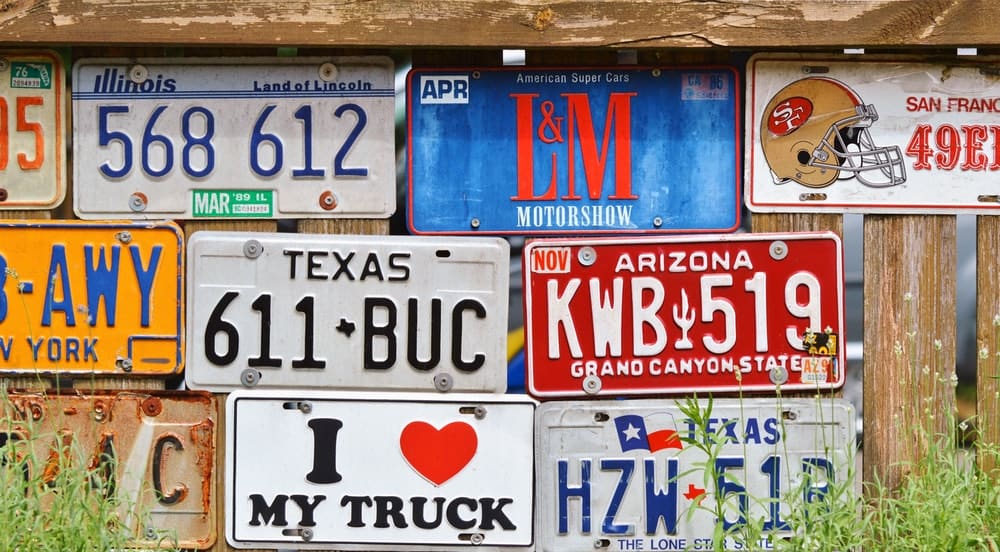
California is testing out a new tech entrant into the transportation space – digital license plates. The technology driving the plate is similar to the one used in Amazon Kindle with monochromatic ink embedded inside it, while being connected to a wireless communication system, a battery, and a computer chip for memory.
The state’s Department of Motor Vehicles (DMV) has launched its first pilot project in Sacramento, with 24 Chevrolet Bolts of the state’s in-house fleet being the benefactors. Right now, the law dictates that the digital plate can only go up on the rear end of the vehicle and the front plate needs to be the standard one already in use.
The digital plate does have a lot of utility, from flashing personal messages, featuring ads, and even sending real time location information back to the server. The technology does not come cheap though. Reviver Auto, the manufacturer of the plate pegs the price at $699 for private customers, with a monthly subscription fee of $7.75 a plate. The manufacturer believes it could be immensely useful for fleet companies while tracking trucks, with data from the plate helping the management to check for maintenance issues based on the distance traveled and electricity used.
For now, the digital plates have not been issued to private users but since that would be a natural extension to the pilot program, it would be prudent to look into the concerns that could follow. The primary issue for private owners looking to procure a digital license plate is a potential invasion of privacy by the government. Since the plate has the ability to track and send real time location data, it gives the state the power to micro-observe the travel patterns of individual users – an unlikely prospect, but a troubling possibility all the same.
The perceived ulitlty of displaying ads on the license plate is borderline superficial as well. The size of a digital license plate is about the same size of a normal plate, and ads on such a small interface would barely be noticeable. At the moment, ads or personal messages can only be floated when the vehicle is stationary, which largely reduces its impact.
The DMV is still undecided on the issue of allowing ads while the vehicle is moving – a decision that could have a great bearing on the safety of drivers. Distraction while driving is a ubiquitous problem, and allowing messages to be flashed while on the road would be adding fuel to the fire. According to estimates from the NHTSA, 3450 people lost their lives due to distraction on the road in 2016 and 391,000 people were injured in motor vehicle crashes that involved distracted drivers in 2015.
Dr. Ashraf Gaffar, an assistant professor of engineering at Arizona State University who specializes in automotive technologies, had a lukewarm response to digital license plates. “Driver distraction is one of the biggest killers of teenagers in the United States. Having one more thing to look at while we’re driving will take our eyes off the road for a second or two more, which will have some side effects,” he said.
Nonetheless, Neville Boston, the CEO of Reviver Auto had allayed concerns by mentioning that the plan would be to display information long enough to capture the attention of motorists, but not to the extent of distracting them from the road. But it remains to be seen how that could be pulled off, especially since Boston had also insisted that the signage would not be “flashing or beeping.”
Reviver Auto’s intention is to create license plates that can imitate roadside electronic signs, while being used to convey emergency information on the road and rewarding motorists who offer to display such information. Going digital could help with renewing registrations electronically without visiting the DMV, as is the usual procedure. Boston also hoped that the future versions of the digital plates could come equipped with Bluetooth, allowing users to sync their smartphones with their plates for additional vehicle safety.
But as with all data that is being sent to the cloud for storage, this system also runs the risk of being hacked, which could potentially release a lot of sensitive customer data. Though Reviver Auto has expressly stated that the security surrounding the digital plates is similar to the ones that banks use, it still needs cautious nitpicking before it gets widely adopted.
Stay up-to-date with the latest commentary and insights on FreightTech and the impact to the markets by subscribing.
